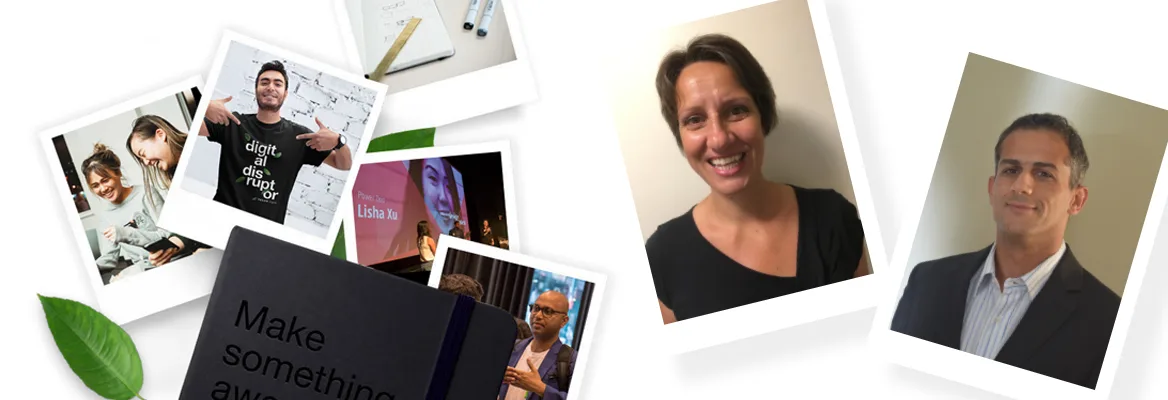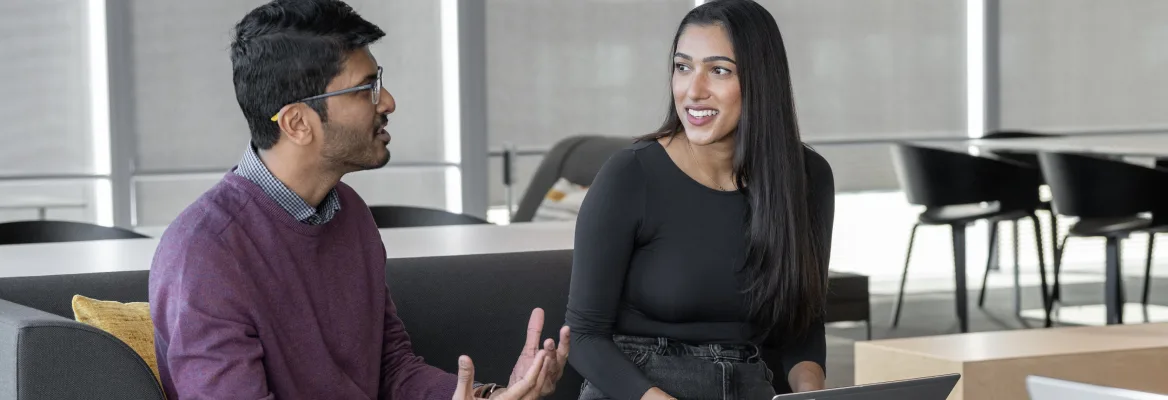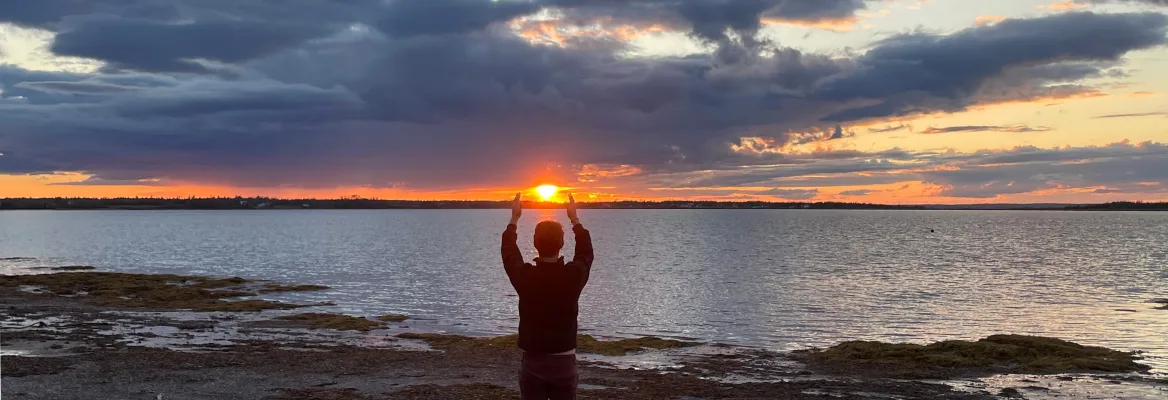Coming to Canada
Culture · Jul 1, 2021
My parents immigrated to Canada from Taiwan in the 60s. Asked why they chose Canada, they said that it seemed more welcoming to foreigners, easier to live here. They immigrated for the promise of opportunity and a better life for their future family.
Whenever I meet someone from away, I’m always a bit awestruck by the amount of energy and determination I perceive is needed to get them to pick up and start their life in a new country, sometimes with a new language, new customs, often without any contacts. And I’m always interested in learning why they chose Canada.
Having been born here, I know Canada to be a wonderful place to have lived my entire life. I also know, especially through recent current events, of Canada’s shameful past when it comes to the treatment of its Indigenous peoples. We all have a lot of work to do in terms of reconciliation, the first step of which is learning.
We are fortunate to have a culturally diverse team here at TELUS Digital. Many of our teammates have indeed arrived here from different lands. I believe it’s this variety of perspectives and backgrounds that makes this a great place to work. After all, a diverse set of ideas can only come from a diverse set of minds.
I got to know Sami Guirguis through a mentorship program we have at work. Sami is a member of a volunteer program, a partnership with the Toronto Region Immigrant Employment Council, that pairs newcomers up with established immigrants. Together with his fellow volunteer, Ivana Lukic-Miloloza, they told me their stories of coming to Canada.
Q: Where were you living when you decided to come to Canada?
Sami: I was living in Cairo, Egypt on the street that leads to the Giza Pyramids, working at my first job after university. And yes, I did go into the Pyramids, via a very narrow and hot tunnel that leads to the burial chamber.
Ivana: I was living in the US at the time, having gone there for university on a basketball scholarship. My boyfriend at the time, now husband, was still in Serbia. We were assessing immigration options and Canada and Australia were our top choices. We chose Canada given it was very welcoming to new immigrants, prioritized diversity and inclusion, promised socio-economic opportunity, and was well-situated geographically.
Q: What influenced your decision to come to Canada?
Sami: Since I was a little kid, I was always curious about people who immigrated. The idea of living somewhere else was exciting to me. Being bilingual in the two official languages made Canada a natural choice.
Q: What did your friends/family say when you told them you’d decided to come here?
Ivana: My family was very supportive but how they felt inside I can’t even imagine. Sometimes I ask my mom what was going through her head at the time, as I try to see it from her perspective (now that I am a parent).
Q: What do you recall about your trip to Canada?
Sami: Not finding the person I was supposed to meet and having to rely on the kindness of strangers to find my way. The first few weeks were exhilarating in that everything was new, but also pretty shocking to realize that suddenly I was at square one as my education, work experience, even driver’s license were not recognized here. I had no network, no family, and no friends.
Ivana: We didn’t know anyone in Toronto. We booked a furnished apartment online for our first month here. First thing I recall was the kindness of immigration officers and how welcoming they were. I also recall that we were not adapted to the temperatures. We would go outside and see people wearing flip flops while we had on a couple of layers of clothes (it was May).
Q: What were the biggest differences you noticed? Similarities?
Sami: I experienced no culture shock per se. The shock was mostly geographic and thermal.The distance between destinations was uncustomarily far, and I was startled to see the grass frozen for the first time. The first winter here, I invested in a huge winter coat. My co-workers would tease me about it because it was so big. It was great for walking outside, but when I’d go on the bus, I’d quickly overheat. What was similar to home was strangers' kindness and willingness to lend a hand.
Ivana: The biggest difference for me was the huge diversity of people and the ability to meet people of very different backgrounds without having to leave the country. Another difference was how polite people were. Where I come from, people are very direct and opinionated. Also how much green space there was. I am still amazed how quickly you can be surrounded by green, but still be in the heart of the city. And similar to Sami, I found people’s willingness to help reminded me of where I came from.
Q: What do you miss from your home country?
Sami: I miss the smell, sound, and salty splash of the Mediterranean Sea.
Ivana: I miss the smell of roses in my dad’s backyard, the smell and taste of strawberries and the juiciness of tomatoes. I also miss my family and friends, but time does not change these established bonds as every time we reunite, it feels like we have been together the whole time.
Q: Do you think of Canada as home? If so, when was the first time you thought of it that way?
Sami: Besides voting, permanent resident status made me feel at home legally from day 1. The diversity made me feel at home. Inclusivity by diversity.
Ivana: Since we arrived, I felt a sense of belonging. I feel that our diversity is welcome.
Q: What does being Canadian mean to you?
Sami: To be different - very different - and yet feel like you belong.
Ivana: Liberty. You have a much easier opportunity to do things here. Much easier than where I came from. And I don’t mean in a materialistic way, but the ability to travel and develop our skills and knowledge. I don’t think we would have had as much of those opportunities had we not come to Canada.
Q: What inspired you to volunteer with TRIEC?
Sami: While there were many services to support newcomers when I arrived, there was not one focused on matching professionals within their respective industry focus. My first experience with TRIEC was a speed mentoring session. It reignited in me the enthusiasm of Canadian newcomers and reminded me of the amazing talent that comes to this country.
Ivana: I had a hard time finding my first job here. Leveraging Career Edge, I secured an internship which within 6 months turned into a full-time job. When I first heard of TRIEC, I was thrilled that there is support for professionally-trained immigrants for building relationships and expanding their network. I feel it is my duty to pay it forward and help others who are in the same position I was in years ago.
Q: Any regrets?
Sami: Absolutely no regrets.
Ivana: I have no regrets. Our journey was not easy. It came from hard work, resilience, and many sacrifices, however that journey made us into the people we are today and allowed us to learn so much more about Canada. We feel fortunate to raise our children as Canadians - with open hearts and minds. And now we are invested in making lives better for others too.



